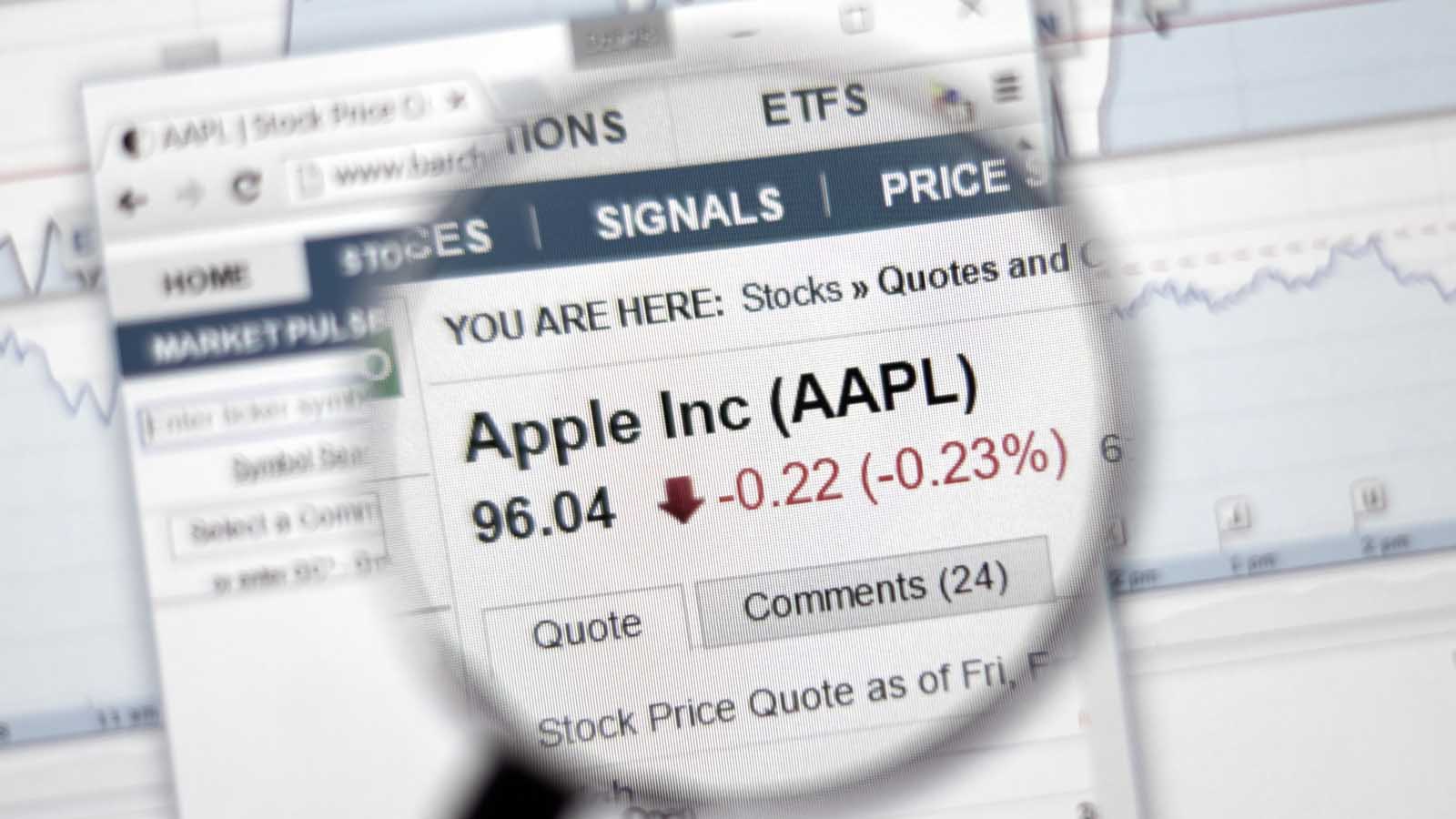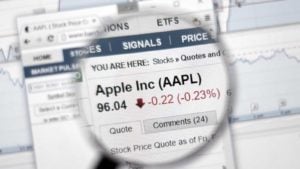Despite the challenge of a mature smartphone market, Apple (NASDAQ:AAPL) stock continues to be on a tear in 2019. Apple stock closed down yesterday and is little changed today, but AAPL stock is still up a whopping 67% this year. Some analysts believe that Apple stock can still rise further. On Wednesday, Morgan Stanley set a target on Apple stock of $296, about 12.5% above its current level.
Does AAPL really still have enough gas in the tank to rise further?
What Does Morgan Stanley Think Will Drive Apple Stock?
On Wednesday, a Morgan Stanley analyst told CNBC that the firm has a price target of $296 on Apple stock.
Why is the firm so optimistic about AAPL stock? While noting that Apple stock is “under-owned” by top investors, Morgan Stanley pointed to recovering iPhone demand, quarterly share buybacks and the growth of the company’s Services as potential catalysts for growth. The firm’s analyst also noted that, despite the ongoing trade war between the U.S. and China, Apple’s margins have been flat or up since America’s tariffs went into effect.
It’s worth exploring these factors in a little more detail.
Recovering iPhone Demand
The meteoric rise of Apple stock over the past decade has been fueled by iPhone sales. But as the smartphone market matured, iPhone sales began to sputter. Global smartphone sales started declining for the first time ever — and the iPhone wasn’t immune. from the trend.
Apple has raised iPhone prices in an effort to offset its softening unit sales. In an attempt to prevent the owners of AAPL stock from panicking, the company announced last November that it would stop reporting quarterly iPhone unit sales. That move had an immediate impact, as Apple stock price took a beating.
With iPhone 11 demand reportedly ramping up, the company should see better results going forward. And with a visual redesign of the iPhone expected in 2020, iPhone sales could get a further boost.
Stock Buybacks
After a tax bill passed in 2017 cut its effective tax rate, Apple began to use some of that extra cash for stock buybacks. It allocated $100 billion to buying back AAPL stock in May 2018, followed by an additional $75 billion allocation in April 2019. At this point, the company still reportedly has $78.9 billion remaining in its stock buyback program.
Trade War
The trade war between the U.S. and China could be disastrous for Apple stock. The company is exposed in both countries. Tariffs on its products — especially the iPhone — would be devastating to its sales in China. And with so much of its production based in China, an escalation could raise the price of Apple’s products or cause its margins to drop in its home market.
So far, the company has escaped largely unscathed, but it has been working with suppliers to prepare to shift production out of China. If the trade war fizzles, AAPL stock will be in good shape. If it escalates, the company has made moves to minimize the impact on its bottom line.
Services
Apple has been going all out on services and it’s paying off. The App Store, Apple Music, Apple Apple News+ and Apple Arcade are increasingly seen as a big part of the company’s growth story. Last quarter, the Services division brought in a record $12.5 billion, making it the second-largest revenue source for the company. And that was before Apple TV+ and Apple Arcade came online.
With rumors of a subscription bundle coming in 2020, Services are positioned for continued growth and are poised to be a significant factor in Apple Stock performance.
The Bottom Line on Apple Stock
Morgan Stanley made news by setting its price target on Apple stock at $296. That’s higher than most firms, but there are more optimistic analysts. Among the 40 analysts polled by CNN Business, Apple stock is a consensus “buy.” Their median 12-month target price of $272.50 is considerably lower than Morgan Stanley’s, but at least one firm expects AAPL stock to hit $325.
The bottom line is that Apple stock price is unlikely to jump 67% in 2020. But over the long-term, investing in AAPL stock is still going to pay off.
As of this writing, Brad Moon did not hold a position in any of the aforementioned securities.

